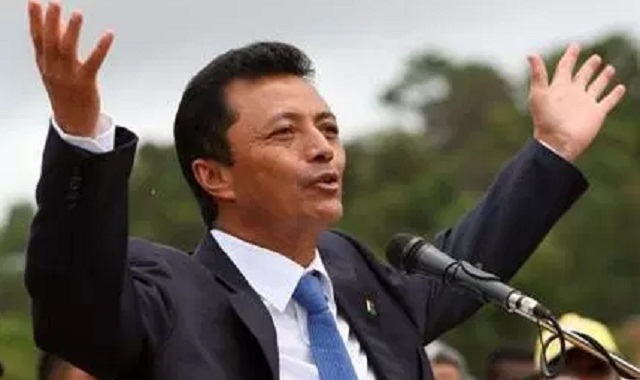
Antananarivo, Madagascar | AFP | Thirty-six candidates will do battle to win the presidency in polls on November 7.
The three frontrunners are former presidents and here are their profiles:
– Ravalomanana: milkman-turned-millionaire –
Marc Ravalomanana, 68, was ejected from power in 2009 and is looking to get his revenge at the ballot box.
A former milkman born to a peasant family, he went on to form an agro empire after creating Tiko yoghurt.
The newly wealthy self-made man became the mayor of Antananarivo in 1999.
Two years later he took power from outgoing president Didier Ratsiraka following violent street protests.
He was reelected in 2006 in the first round of voting and secured the cancellation of Madagascar’s debt.
While his supporters lauded his indefatigable energy, critics accused him of acting like a dictator and criticism mounted from the end of 2008.
On February 7, 2009, his presidential guard opened fire on supporters of then Antananarivo mayor, Andry Rajoelina, as they marched on the presidential palace.
Ravalomanana was forced to hand power to the army who subsequently passed the presidential reins to his rival Rajoelina.
He then went into exile, not returning to the Indian Ocean island nation until the election of Hery Rajaonarimampianina in 2014.
Asked how he would react to a Rajoelina win, Ravalomanana told AFP: “I would accept the results, within limits”.
– Rajoelina: return of ‘the disc jockey’? –
Andry Rajoelina, 44, is the pollsters’ favourite and has attracted impressive numbers to his rallies which have featured performance artists and fireworks.
His policies have drawn the mirth of his rivals, such as a proposal to fit zebu cows with trackers to battle rustling, and a scheme to convert Tamatave port into a “Malagasy Miami”.
Rajoelina burst onto the political scene in 2007.
He was previously known for promoting parties in the capital which earned him the nickname “the disc jockey” but caused an upset when he won the city’s mayoral race.
Helped by his own Viva broadcasting channel and strong communications skills, he quickly established himself as the leading voice of opposition to then-president Ravalomanana.
His supporters openly defied the regime with the tacit support of the military who helped oust Ravalomanana in 2009.
Rajoelina defended his elevation to the presidential palace on the wave of a coup d’etat.
“It was a popular uprising,” he told AFP.
The handsome then thirty-something struggled to lead the country out of crisis as its unelected leader.
His rivals also accused him of turning a blind eye to the pillage of the country’s natural resources.
His failings won him the nickname “crayfish” — a crustacean that walks backwards.
Under international pressure, Rajoelina did not contest the 2013 election and backed his victorious former finance minister Hery Rajaonarimampianina.
The two men fell out shortly after and will face off at polls for the first time this year.
 The Independent Uganda: You get the Truth we Pay the Price
The Independent Uganda: You get the Truth we Pay the Price





